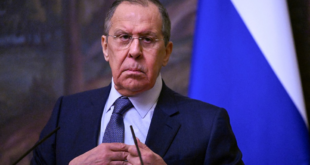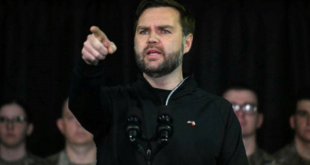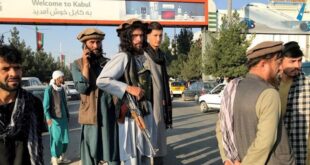 BRUSSELS – Tensions among key allies over the war in Afghanistan spilled into the open on Wednesday as NATO rejected U.S. criticism that some of its troops did not know how to fight a guerrilla insurgency.
BRUSSELS – Tensions among key allies over the war in Afghanistan spilled into the open on Wednesday as NATO rejected U.S. criticism that some of its troops did not know how to fight a guerrilla insurgency.
In rare comments publicly faulting allied operations on the ground, Defense Secretary Robert Gates questioned whether NATO forces and advisers had the training to tackle Taliban and other insurgents behind rising bloodshed in south Afghanistan.
The remarks to the Los Angeles Times appeared after Gates on Tuesday ordered an extra 3,200 marines to Afghanistan — the bulk of them to the south — after failing to persuade European capitals to provide reinforcements.
“I have no indication — and neither has the military chain of command — that any country or countries are not exercising their tasks to the highest levels,” NATO Secretary-General Jaap de Hoop Scheffer told Reuters, rebutting the criticism.
“There is no reason not to conclude that all nations, including the ones in the south, are performing very well,” he said by telephone of the 42,000-strong NATO-led ISAF force.
Aside from the United States, NATO allies operating in south Afghanistan include Britain, Canada, the Netherlands, Denmark, Estonia and Romania.
Gates singled out no ally but the Los Angeles Times quoted him as saying he believed NATO forces there lacked the know-how to combat the guerrilla war being pursued by the Taliban.
“I’m worried we’re deploying (military advisers) that are not properly trained and I’m worried we have some military forces that don’t know how to do counter-insurgency operations,” it quoted him as saying.
“Most of the European forces, NATO forces, are not trained in counter-insurgency. They were trained for the Fulda Gap,” Gates said, referring to the strip of land between former East and West Germany where a Soviet invasion was deemed most likely.
DISAGREEMENT ON TACTICS
The British Ministry of Defence insisted its troops had extensive counter-insurgency experience.
“We are working to an agreed NATO operational plan under a U.S. commander,” a spokesman said. “We are confident that … U.S. General Dan McNeil is more than content with the UK forces operating in southern Afghanistan.”
In Washington, a Pentagon spokesman said Gates was concerned his remarks were being interpreted as targeting individual countries, stressing that he had said that NATO structures as a whole were not designed to tackle insurgencies.
“The secretary of defense has read the article and is disturbed by what he read,” he said. “The totality of the piece leaves the impression that the secretary is disturbed with the performance of individual countries in Afghanistan. He is not.”
He said Gates repeated concerns in the January 7 interview over the alliance’s capabilities that he had expressed to NATO allies at a meeting in Scotland in December.
Yet his comments echo what military officials say is U.S. frustration with British tactics, and particularly a plan to use untrained neighborhood defense teams — known as “arbakai” — to help improve security in the south.
McNeill has been quoted as saying the idea would not work and even risked fuelling the insurgency.
European capitals, seeking to maintain fragile support among voters for keeping their troops in Afghanistan, will be dismayed that such divergences are being aired in public.
Asked whether he believed Gates was right to raise operational concerns in a newspaper interview, de Hoop Scheffer said: “Every single soldier from every single NATO ally and partner nation deserves our full support…And they have it.”
With the new U.S. marines, the United States will have around 30,000 troops in Afghanistan, about half in ISAF and the rest conducting missions ranging from counter-terrorism to training Afghan soldiers.
 Eurasia Press & News
Eurasia Press & News



